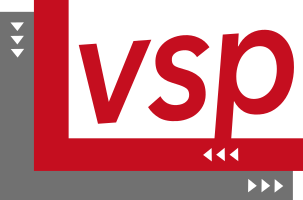This repository provides an open MATSim transport model for Velbert, Germany, generated by the Transport Systems Planning and Transport Telematics group of Technische Universität Berlin.
The model contains a 10pct sample of the Velbert population; road capacities are reduced accordingly. The scenario is calibrated taking into consideration the modal split and mode-specific trip distance distributions.
The MATSim program code in this repository is distributed under the terms of the GNU General Public License as published by the Free Software Foundation (version 2). The MATSim program code are files that reside in the src directory hierarchy and typically end with *.java.
The MATSim input files, output files, analysis data and visualizations are licensed under a Creative Commons Attribution-NonCommercial 4.0 International (CC BY-NC 4.0) License.
MATSim input files are those that are used as input to run MATSim. They often, but not always, have a header pointing to matsim.org. They typically reside in the scenarios directory hierarchy. MATSim output files, analysis data, and visualizations are files generated by MATSim runs, or by postprocessing. They typically reside in a directory hierarchy starting with output.
Other data files, in particular in original-input-data, have their own individual licenses that need to be individually clarified with the copyright holders.
Handling of large files within git is not without problems (git lfs files are not included in the zip download; we have to pay; ...). In consequence, large files, both on the input and on the output side, reside at https://svn.vsp.tu-berlin.de/repos/public-svn/matsim/scenarios/countries/de/velbert/velbert-v1.1-10pct .
The internal Documentation is in GoogleDocs
You can either download the Project as zip File or check it out as a git project
- Download the Zip-File
- Unzip the Zip-File
- Follow the instructions in Building and Running it locally
- Check out as Git-Project from Github
- Follow the instructions in Building and Running it locally
You can build an executable jar-file by executing the following command:
./mvnw clean packageor on Windows:
.\mvnw.cmd clean packageThis will download all necessary dependencies (it might take a while the first time it is run) and create a file matsim-velbert-1.1.jar in the top directory. This jar file can be executed with Java on the command line:
java -jar matsim-velbert-1.1.jar run --config ./scenarios/velbert-v1.1-10pct/matsim-velbert-v1.1-10pct.config.xml- download a modern version of eclipse. This should have maven and git included by default.
file->import->git->projects from git->clone URIand clone as specified above. It will go through a sequence of windows; it is important that you import as 'general project'.file->import->maven->existing maven projects
Sometimes, step 3 does not work, in particular after previously failed attempts. Sometimes, it is possible to
right-click to configure->convert to maven project. If that fails, the best thing seems to remove all
pieces of the failed attempt in the directory and start over.
File -> New -> Project from Version Control paste the repository url and hit 'clone'. IntelliJ usually figures out
that the project is a maven project. If not: Right click on pom.xml -> import as maven project.
The project uses Java 11. Usually a suitable SDK is packaged within IntelliJ or Eclipse. Otherwise, one must install a suitable sdk manually, which is available here



